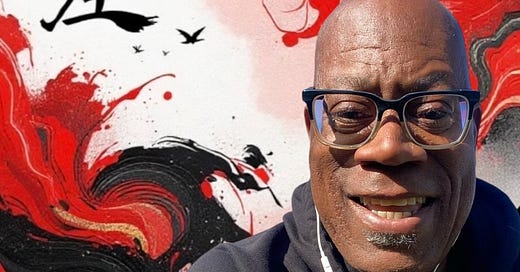For most of my life, I was a master shapeshifter. Not the kind you read about in myths or fantasy novels, but the everyday kind—the kind that bends, morphs, and performs to meet the expectations of others.
I became what others wanted me to be: the polite professional, the affable husband, the reliable friend, the dependable doer. But somewhere in that shape-shifting dance, I lost the most essential thing of all—me.
In 2012, that illusion shattered. My divorce was not the result of infidelity or betrayal in the traditional sense. It was subtler and more soul-wrenching. She wanted me to be someone I’m not. And I obliged for far too long.
I twisted myself into a palatable version of the man I thought she’d love—successful, agreeable, always saying yes even when I wanted to scream no. But at some point, the inner tension became unbearable. I had built a façade for love, and it cost me my truth.
Zhuangzi, the great Taoist sage, once wrote: “A man is not a fish. How do you know what makes a fish happy?” His point? Stop pretending to know what others want or need from you. Stop living your life as if others are the standard-bearers of your worth. Zhuangzi would say that seeking validation from others is like trying to wear another man’s skin—it will always chafe.
The Stoics were no gentler. Marcus Aurelius warned against living “as if you were going to live ten thousand years.” In other words, stop waiting. Stop pretending. There is no dress rehearsal. If you’re not living aligned with your essence today, you’re wasting the only moment you truly have.
Eastern philosophy, particularly Taoism, teaches that everything has its own nature—ziran, or “self-so.” The tree doesn’t beg the sun for approval. The river doesn’t ask permission to flow. The Tao doesn’t perform. It is.
And in that being, it is powerful beyond measure. The danger of seeking validation, then, is not just that it weakens us but distorts us. Like a compass led astray by too many magnets, we lose our direction, our grounding, our essence.
For me, true growth has come from learning to say no. Not out of rebellion, but out of reverence for myself. No to the project that pulls me away from my calling. No to the relationship that asks me to contort. No to the version of success that leaves me spiritually bankrupt. That kind of no? It’s sacred.
And here’s the paradox: the more I’ve honored my truth, the more rooted I’ve become—not arrogant, but unwavering. Because I’ve realized that true power doesn’t come from applause, likes, or a polished resume. It comes from the quiet fire within. The kindling of a man who has stopped performing and started being.
The Tao doesn’t rush. It doesn’t prove. It simply flows. So now I ask myself, not “what do they want from me?” but “what is the nature of who I am becoming?” That’s the deeper work. That’s the enduring truth.
Let others chase applause—I’ll chase authenticity. Let others mold themselves to fit the world—I’ll shape my world by standing in my own skin.
Because I’m no longer interested in being loved for who I’m not.
I want to be free for who I am.
If the Daily Chocolate Taoist nomadic wisdom lights up your day, fuels your mind, or gives you a fresh perspective, I’d love your support as a paid member!
Or, if you’re feeling generous, drop a little (or a lot) of dirty chai latte love my way—every bit helps keep this Taoist journey flowing.
I’m committed to delivering high-quality, thought-provoking features straight to your inbox—no paywalls, no fluff, just raw, unfiltered wisdom on what it means to be human in today’s paradoxical, mysterious, and uncertain world.
Your support fuels my full-time mission, and I appreciate every single contribution. Let’s keep this energy going!
Diamond Michael Scott
aka The Chocolate Taoist





What more can one ask of himself?
Very clever use of quotation with the fish remark. You note that Zhuangzi wrote "...how do you know what makes fish happy" knowing that this was put into the mouth of the sage's friend after Zhuangzi pointed out that the fish below them were happy. I have been missing part of the subtlety of their dialog. Yes, the friend is right that the sage is not a fish so doesn't know how he knows, and the friend is not the sage so the friend doesn't know what the sage knows. I had read this as an attack on ad hominem arguments, which it is, but it is also the subtle point you wanted to make, I think, as a throwaway: the friend IS right: the sage doesn't know HOW he knows the fish are happy; and yet the sage is right: he knows THAT the fish are happy. And so for all of us, I think. Like you, I believe that each of us can know what is right for one's own self, even though I, myself, am not all of us. Thanks.